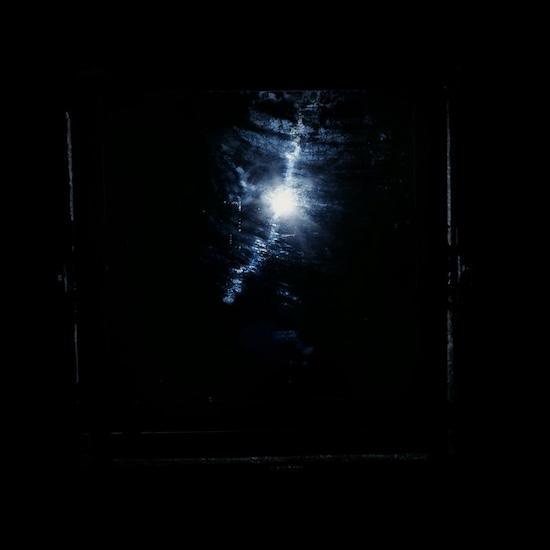There are moments on Ficar Vivo which sound like pure electricity, buzzing through wires. It’s just electric guitar, bass, drums and sax, but it feels like you’re being sucked in, past the microphones and the instruments and their pick-ups, deep into the cables and the circuitry, as if the current itself ran straight into your auditory nerve. Rattling around with the capacitors and the diodes, these tiny little components, somehow this impossibly vast soundstage opens up. It’s like Ant-Man in the Quantum Realm. The tiniest spark becomes a forest fire, raging across the landscape, the earth left scorched and ruined in its wake. Time and space lose all meaning here.
Caveira are a Lisbon-based quartet led by guitarist Pedro Gomes, with Pedro Alves Sousa on tenor saxophone, Miguel Abras on bass, and Gabriel Ferrandini playing drums and percussion. They’ve been knocking around for about twenty years now, releasing mostly on CD-r, mostly ‘Not On Label’. In 2015, I saw them play in an old firehouse down by the waterfront of Barreiro, just across the Tagus from the Portuguese capital. At the time, they reminded me of no wave groups like DNA and The Contortions. They resembled, I suggested, “a warzone in fast-forward.” This is, I think, their first release to make it through a vinyl pressing plant and it feels like a significant upgrade. What felt fitful and puckish a decade ago, now comes across precisely composed, almost symphonic.
In the early 1960s, the first shots were fired in what would later be known as the ‘loudness war’. Enterprising producers like Phil Spector and Berry Gordy, frustrated by the flattening effect of radio compression, sought techniques to make their records pop out of your transistor, sounding that much bigger, fuller, louder than their competitors. Spector doubled up the bass guitars in fifths to create a psychoacoustic phantom of an additional third bass note, deeper than any radio set would then allow. Gordy’s Motown records boosted the 8–10 Khz range and filtered out anything under 70 Hz. Over the years, methods like this multiplied to the point where everything just sounded really, really loud all the time, with practically no dynamic range whatsoever. By the late 90s, the waveform for a track like Metallica’s ‘My Apocalypse’ looked like a breeze block.
But for the most part classical labels didn’t engage (at least, not at first). Labels like Deutsche Grammophon were prized by collectors for their careful mic placement, the lack of dynamioc range compression used in the recording process. To this day, audiophiles will still wax lyrical on online forums over the ‘Big Tulip’-era, when their albums’ centre labels came fringed with blue flowers (apparently, the moment when these tulips were replaced by a black and white border roughly corresponds to the moment audio standards started slipping). It was the sound of those early DG records that inspired the production of Ficar Vivo. A note on the Bandcamp page proudly states “Compressão = Zero”.
It’s this, in part, that makes the record sound so intense, so spacious, so present. But it’s not only that. Everyone uses compression these days. Recording engineers apply it to individual tracks then apply it to the whole mix, then they’ll whack a bit more on in the mastering process for good measure. It’s a means that covers up a multitude of sins. It’s difficult to do without it. The strictures of Caveira’s chosen recording process ensured that this was an album which took time to produce. You can hear that time and all the thought and care that came with it in the three long tracks gathered here. You can also hear four inventive and highly adept musicians absolutely going at it. This is a fierce record, determined and uncompromising. If you were to look at it the wrong way or for too long, it would probably beat the living shit out of you.


